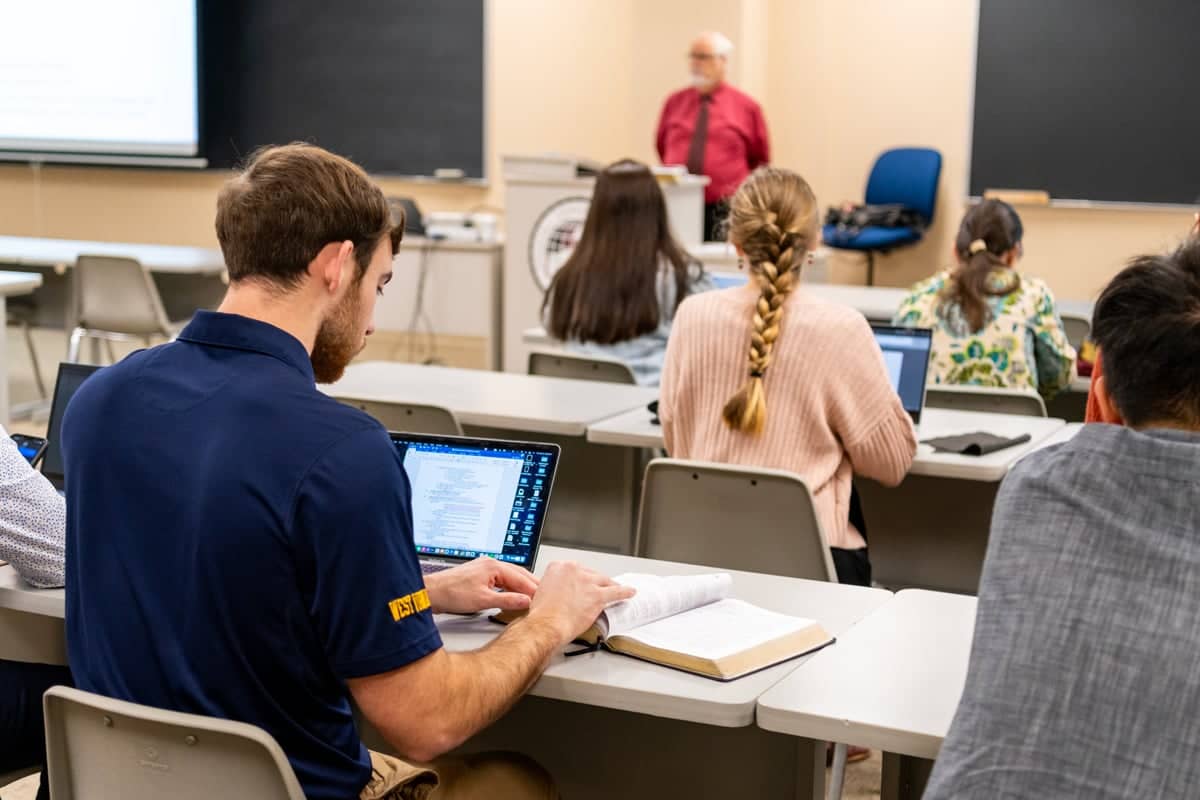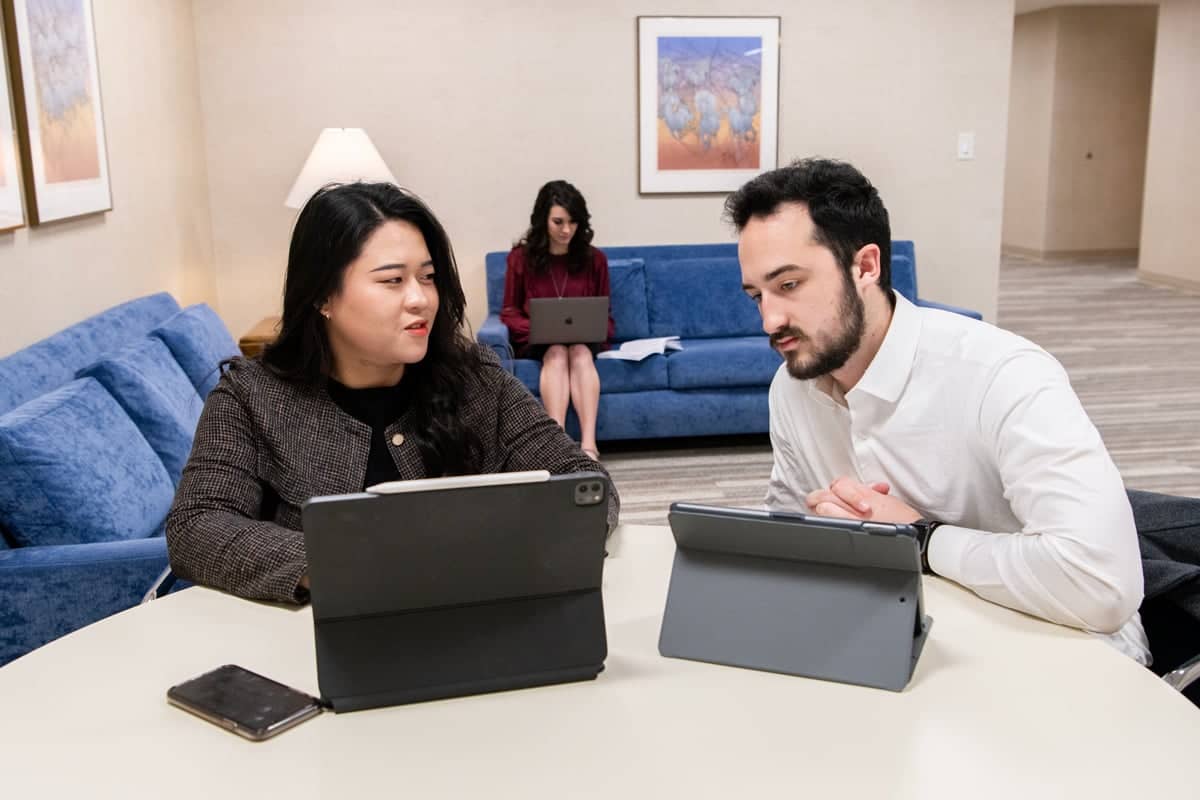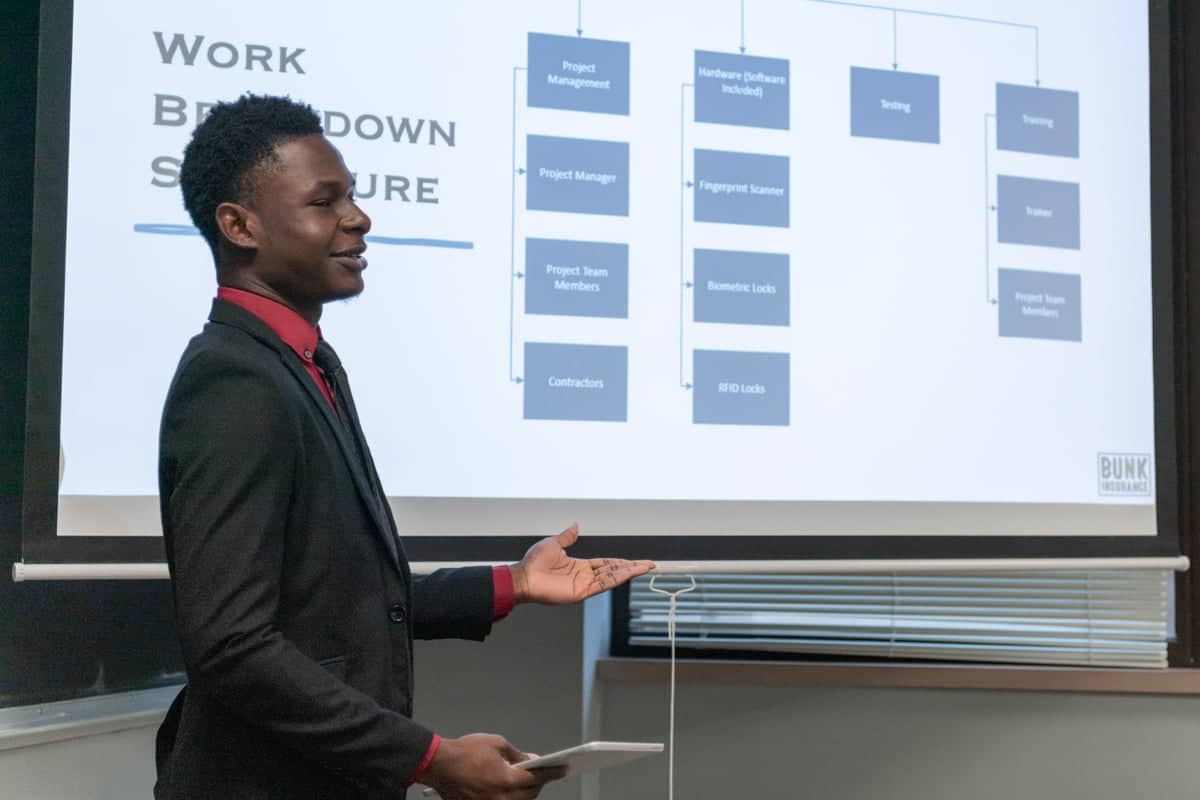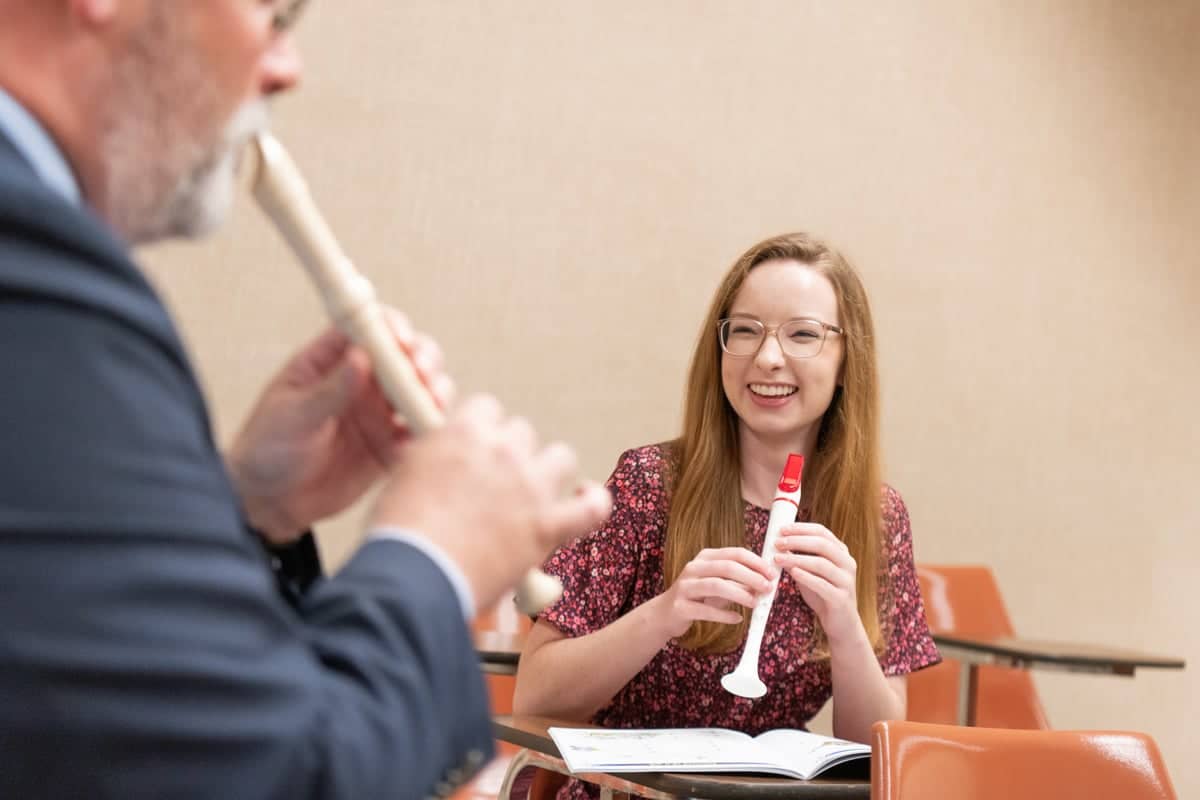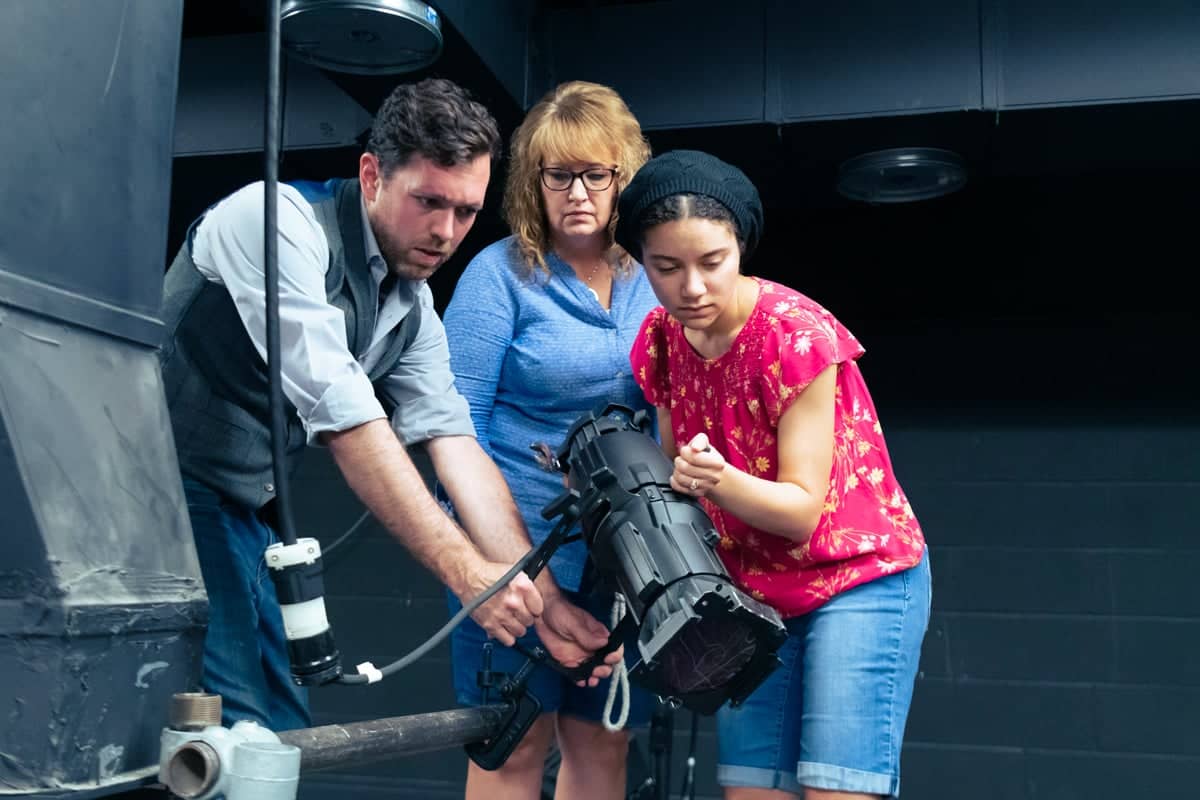There’s no question that earning an advanced degree can be one of the best ways to increase opportunities and become more effective in career or ministry. Most adults would agree that as they get deeper into their career field, additional training and credentials could make a world of difference!
For many, though, a graduate degree seems out of reach. As millions of Americans struggle with student loan debt—the average debt for a master’s degree is $71,000, according to the most recent data available from the National Center for Education Statistics—many college graduates don’t even consider grad school as a realistic option.
But what if it were possible for graduate students to get a completely debt-free degree, with money in their savings accounts, plus a few years of leadership experience to put on their résumés?
That dream can be a reality with the Graduate Assistant (GA) Program from Pensacola Christian College and Pensacola Theological Seminary. And under the leadership of Dr. Mike Davis, dean of graduate students—guided by PCC president Dr. Troy Shoemaker and supported by a top-notch team—the program has undergone some exciting improvements in the last few years.
Debt-Free Degree and Savings in the Bank
PCC and PTS strive to “empower leaders to influence the world for Christ,” and part of that goal includes making it possible for students to get an excellent education at a price they can afford.
Graduate and seminary classes are flexible and achievable for any students, whether taking online courses or studying on campus. But for students who sign a contract for the GA Program—to work on campus while earning their degrees—they receive incredible added benefits.

Here’s how the GA Program works:
A GA scholarship entirely covers tuition and program fees, plus a portion of housing and meal costs. In addition to receiving the scholarship, graduate assistants earn hourly pay, working 20–28 hours per week depending on their academic program and citizenship. When students finish their degrees, they’re ready to enter the career field with an advanced degree, valuable work experience, and the financial freedom of zero graduate student loan debt.
“Being a GA has tremendous financial benefits,” said Ethan Granata (Pastoral Ministries ’22), who is currently pursuing an M.A. in Bible Exposition. “Not only have I been able to receive a debt-free degree, but I have also been able to save money. Discounted prices in monthly rent and the ability to access PCC’s dining facilities have allowed my expenses to be minimal. Because of these benefits, my financial starting point will be much stronger after graduation.”
“Not only have I been able to receive a debt-free degree, but I have also been able to save money.” —Ethan Granata
Estevão Gonçalves (Music: Voice ’22), an M.A. in Music student, researched several graduate programs before determining that the GA Program at PCC offered the best financial value. “It is literally a blessing in many ways,” he said. “Getting an education for free while working seems unreal sometimes.”
Constantly Improving
Although graduate and seminary students have appreciated the GA Program’s benefits for decades, students in recent years have especially appreciated Dr. Mike Davis, the program’s dedicated leader. A self-described “one-stop shop” for GAs to receive help and guidance, he has worked hard to make sure the program meets students’ needs and provides an excellent experience. “I have an open-door policy,” he said. “If I’m in my office, all you have to do is poke your head in and say, ‘I need to talk to you.’ The goal is that when a student comes in, they leave in better shape than they were when they came. If I don’t have the answer, we’ll be able to find it for you.”
“[Dr. Davis] has made it clear that he is ready to be our advocate and has kept his word.” —Zaka Kakene
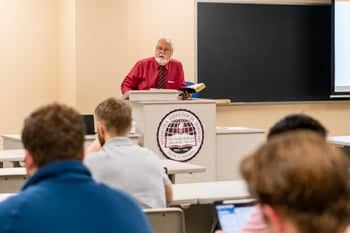
To encourage camaraderie, personal growth, and a culture of openness, he also organizes Q&A times, meetings, leadership training sessions, individual coaching and mentorship, and even off-campus outings and dinners for any interested graduate assistants.
Having someone personally invested in their success has been a great encouragement to GAs. “[Dr. Davis] has been very helpful,” said Zaka Kakene (Biology ’19), pursuing her M.S. in Curriculum and Instruction—Science Specialization. “He has made it clear that he is ready to be our advocate and has kept his word.”
Valuable Leadership Experience
One significant change recently implemented is that all graduate assistants are given opportunities to lead in their work areas, providing practical experience that will benefit them after graduation.
“We’re helping create an atmosphere across campus, treating a GA as an associate professional. You’re part of the team,” Dr. Davis explained. “We have worked substantially to move GAs into positions where they have the opportunity to demonstrate leadership, whether that’s in a lead role on a crew, or a manager, or a teacher—learning how to interact with people, working alongside people to manage and oversee things.” Students pursuing advanced degrees are preparing for positions of respect and leadership, and the roles assigned to GAs give them a strong start in those areas.

As a music student, Estevão divides his work hours between the Rebekah Horton Library and the Chamber Ensemble Choir, where he works as the choir assistant. “In both of my work areas, I have lots of responsibilities,” he said. “Leadership development comes especially from the fact that my supervisors trust my work and give me opportunities to act, give my opinion, and improve this characteristic. The GA Program is helping me to develop character, responsibility, and especially leadership.”
Ethan, a seminary student, has also enjoyed a job where his unique skill set is utilized. “As the assistant Student Ministry coordinator, my primary responsibility is to oversee all of the school’s Christian Service opportunities,” he shared. “I am able to perform practical tasks like training students how to effectively minister to the community and developing evangelistic material. The thing I value the most about my position is knowing that the skills I am gaining now will directly aid me in doing what God has called me to do in the future.”
“The GA Program is helping me to develop character, responsibility, and especially leadership.” —Estevão Gonçalves
Although work is assigned based on a student’s area of study and personal abilities whenever possible, every job is a chance to learn and grow. Daniel Herman (Youth Ministries ’21), an M.Div. student, has found it beneficial to work in multiple areas as he prepares for ministry. “My various GA jobs have included a variety of leadership positions,” he said. “I’ve been a Chick-fil-A supervisor, a Driver’s Ed teacher and baseball coach at PCA, and a bus driver. Even some of the time I’ve spent in Maintenance, I got to tear down walls or use equipment I’d never touched before. These jobs often stretched me, but I’d like to think I grew and led well in each role. Growing in administration, patience, and people skills is valuable for any future job or ministry.”
When students apply to graduate school or seminary, it’s because they want to get a degree and learn in a classroom setting—but for graduate assistants, the work experience adds a whole new dimension to their education.
Ready for the Future
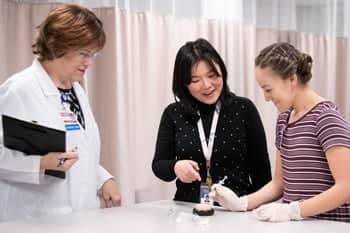
As students prepare to serve the Lord effectively in ministry, education, business, nursing, performing arts, or visual arts, a few extra years of training can open doors of opportunity and help graduates to be more capable in their future endeavors. “I would encourage students not to be turned away by the extra 2–3 years of schooling,” Ethan advised. “When it comes to starting a career, you want to make sure you give yourself the best foundation possible. A person may continue in their career for the next 40–50 years of their life. That is why it is so important to start as strong as possible. The extra 2–3 years will prove to pay huge dividends later down the road.”
At first, Katie Gallagher (Elementary Education ’22), studying Bible Exposition, had felt that “pursuing a master’s degree seemed like a detour” after completing her bachelor’s degree. “I immediately wanted to begin my missions journey overseas after graduation, but God has showed me through my time as a GA that there were lessons I needed to learn first,” she said. “Now that I am in my last semester, I look back and see God’s faithfulness. I am so thankful for every lesson I have learned as a GA and every new skill and perspective I have gained through this degree. I am certainly a different person now than when I signed my contract about two years ago.”
“When it comes to starting a career, you want to make sure you give yourself the best foundation possible.” —Ethan Granata
The solid education and credentials, combined with leadership training and experience—plus the incredible opportunity to graduate with savings instead of student debt—make the Graduate Assistant Program an exciting option that many students should consider.

